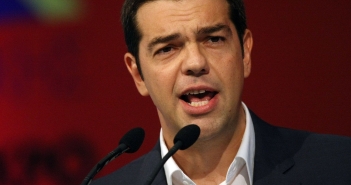Some years ago I read about a small theatre in Moscow staging hard-hitting plays critical of Official Russia. It goes without saying that the authorities did not take kindly to Teatr.doc and its founders, Mikhail Ugarov and Elena Gremina (who both died of heart attacks within six weeks of each other in 2018).[i]
In 2014 Moscow City Council closed the theatre on a planning technicality regarding the location of a window. Then, in 2018, nine of the theatre’s actors were arrested for ‘unlawfully drinking alcohol in central Moscow.’[ii] And in August of this year, unknown assailants stormed the stage during a gay-themed play.
But despite all the bureaucratic obstacles put in its way, Teatr.doc continues because even a regime like Putin’s baulks at blatantly shutting down a tiny theatre – it prefers to use legal levers to stifle dissent.
Unfortunately, Putin’s regime is not alone in basing its repression on the ‘rule of law’. Erdogan’s Turkey is also at it. Even in the EU, Poland, Hungary and Spain are using repressive legislation and compliant judges to shut down non-conformism.
Flawed Democratic Transition in Spain
The case of Spain is the most alarming because few people are aware of the problems there. Ever since dictator Francisco Franco died in 1975, the country has been portrayed as the poster child for a transition from totalitarianism to democracy. But, as is often the case with the family of an alcoholic who falls off the wagon, its friends are ignoring the warning signs, hoping that it’ll right itself, and turning a blind eye to lapses.
Problems have long dogged the fledgling democracy. In the mid-1980s, the then Socialist government organised death squads against those suspected of links to Basque terrorist organisation ETA. A few bureaucrats and a senior minister even spent a few months behind bars for their role in the scandal.
Then in the late 1990s, judges shut down a number of Basque nationalist publications on the grounds that they were financing ETA. The conservative prime minister at the time, Jose Maria Aznar, even boasted ‘Did anyone believe we wouldn’t dare close [them]down?’[iii] An unusual thing to say in a democracy supposedly with a Separation of Powers.
Most disturbing of all, journalists from those publications served jail sentences of up to eleven years. The closures of all the publications were later – too late for those who had been jailed –found by Spain’s higher courts to have been unlawful.
the ‘Gag Law’
Those cases could be written off as once-in-a-decade incidents caused by disconcertion in responding to a terrorist campaign. But since 2015, new legislation – the Organic Law for Citizens’ Security, colloquially known as the ‘Gag Law’ – has allowed the authorities to clamp down on free speech, free assembly and peaceful acts of civil disobedience.
Complementing the Gag Law is anti-discrimination legislation – known as ‘hatred offences’ – which was introduced to deal with, for example, racism and sexism but is increasingly being used to prosecute people on ideological grounds. And from looking at official statistics, it’s clear that such legislation is being disproportionately employed in two regions: Catalonia and the Basque Country.
In 2017, the last year for which official figures are available,[iv] there were 1,418 ‘hatred offenses’ in Spain. Of these, 36% were prosecuted in Catalonia and 10% in the Basque provinces. That means almost half of all cases in two regions accounted for just a fifth of the population.
‘ideological hatred’
And when hatred offenses are broken down, ‘ideological hatred’ in Catalonia accounted for 42% of all cases nationally. There’s an explanation for this.
Since the beginning the decade, Catalan nationalism has gone from being satisfied with devolution within Spain to demanding a referendum on independence. After being stonewalled by the government in Madrid, they went ahead and organised one on their own. The conservative government at the time responded by sending in thousands of riot police to requisition ballot boxes. In carrying this out, the police beat voters with truncheons and fired rubber bullets into crowds queuing outside polling stations.
The images were seen around the world and proved a PR disaster for Spain, which has since then tried to dismiss these events as ‘fake news’ and ‘Catalan propaganda’. The Supreme Court in Madrid is now deliberating on the fate of twelve Catalan leaders accused of violent rebellion, sedition and embezzlement for organising the referendum. They face up to twenty-five-years behind bars.
Going hand-in-hand with the trial of the leaders is a lower level persecution of ordinary Catalans, who publicly display separatist sympathies. Many are charged with ‘ideological hatred’. And while the cases are often thrown out by the courts, on account of risible evidence, the stress of being charged and the cost of hiring a legal team might deter democratic expression of political opinions. Thus, the threat of prosecution allows the state to persecute without explicitly having to do so.
Other targets
That said, Catalan nationalists aren’t the only ones being targeted. The Podemos mayor of Cadiz, José María González Santos, is standing trial[v] at the time of writing on an ‘ideological hatred’ charge. He has been accused of ‘hatred of Israel’ in response to cancelling a run of Israeli movies during a film festival. Also a Barcelona University professor is being investigated for ‘calumny’[vi] after claiming that prisoners are tortured in Catalan prisons.
Other almost comical cases that have made headlines are those of a clown with a red nose[vii] who stood beside a policeman and a car mechanic[viii] who refused to service the vehicle of a police officer. Both were Catalans and both were charged with ‘ideological hatred’. Both cases were thrown out, but not after the accused had endured months of uncertainty.
Both cases also serve to highlight how legislation designed to protect minorities is being used to persecute members of a national minority in order to protect police from perceived slights. As the former interior minister, the conservative judge Jose Ignacio Zoido said: ‘All those who have disrespected the forces and corps of security of the state will pay for it in the courts.’[ix]
One such case is that of Catalan satirical magazine El Jueves, which was charged with ‘hatred’[x] for a cartoon saying that cocaine supplies had run out in Catalonia because of all the riot police sent there from the rest of Spain. While people who protested outside a hotel hosting said riot police were also investigated for ‘hatred.’[xi]
Against the Constitution?
The crime of ‘hating’ police has given rise to some controversy among legal academics. Professor Joaquin Urias, a constitutional law expert at Seville University, has argued that ‘it can’t be applied to protect an institution.’ He added: ‘Accepting that hating the police is a criminal offence could insert us into a terrible spiral of repression.’ He was responding to the so-called ‘Alsasua 8’[xii] youths, who were jailed for between two and thirteen years for public disorder offences and ‘ideological discrimination’ after a bar fight with two off-duty policemen.
Perhaps the most notorious cases are those of the puppeteers Alfonso Lazaro de la Fuente and Raul Garcia, who spent three days in jail, and the TV comedian Dani Mateo, who is Catalan. The puppeteers were charged with ‘hatred’ and ‘glorifying terrorism’ after parents complained about a banner held by one of the puppets in a children’s matinee in Madrid. They endured an eleven-month ordeal from their arrest to the judge striking out the case. Meanwhile, Mateo was charged with ‘hatred’ for appearing to blow his nose on a Spanish flag during a TV sketch. His ordeal lasted a mere three months.
The situation is, to put it mildly, an affront to democracy. Amnesty International has said that it is having ‘a profoundly chilling effect, creating an environment in which people are increasingly afraid to express alternative views, or make controversial jokes.’
Esteban Beltran, Director of Amnesty International Spain, added: ‘Sending rappers to jail for song lyrics and outlawing political satire demonstrates how narrow the boundaries of acceptable online speech have become in Spain.’
He continues: ‘People should not face criminal prosecution simply for saying, tweeting or singing something that might be distasteful or shocking. Spain’s broad and vaguely worded law is resulting in the silencing of free speech and the crushing of artistic expression.’
What next?
The current caretaker government of Socialist Pedro Sanchez indicated while in opposition that it would address these worrying trends. But despite being in power for more than a year, it has done nothing other than to set up a propaganda ministry, Global Spain, which aims to fight the ‘disinformation’ about the state of democracy spread by, wait for it, ‘the enemies of Spain.’
What can be done to make Spain change course? With four of the five big parties in its parliament fully behind the idea that Spain is protecting democracy by clamping down on freedom of expression, there are appears to be little hope. Foreign criticism, such as claims that there are political prisoners in its jails, makes the Spanish establishment bristle. But perhaps more concerted criticism from the EU and its member states might have an effect. We won’t know until the EU speaks out – up till now, it has chosen to look the other way.
SUPPORT Cassandra Voices with a Patreon Donation CLlCK HERE
[i] Sophia Kishkovsky, ‘Moscow Theater Rebels, Husband and Wife, Are Dead’, June 8th, 2018, The New York Times, https://www.nytimes.com/2018/06/08/obituaries/gremina-and-ugarov-russia-teatr-doc-die.html
[ii] Katie Davies, ‘Actors from Russia’s independent Teatr.doc detained by Moscow police’, July 5th, 2018, The Calvert Journal, https://www.calvertjournal.com/articles/show/10464/actors-from-russias-independent-teatr.doc-detained-by-moscow-police.
[iii] Jose Miguel Larraya, ‘”¿Alguien pensaba que no nos íbamos a atrever a cerrar ‘Egin’?”’ July 23rd, 1998, El País, https://elpais.com/diario/1998/07/23/espana/901144814_850215.html
[iv] http://www.interior.gob.es/documents/10180/7146983/ESTUDIO+INCIDENTES+DELITOS+DE+ODIO+2017+v3.pdf/5d9f1996-87ee-4e30-bff4-e2c68fade874
[v] Untitled, ‘José María González ‘Kichi’ declara en el juzgado por cancelar un ciclo de cine israelí’, September 17th, 2019, Diario de Cadiz, https://www.diariodecadiz.es/cadiz/Jose-Maria-Gonzalez-Kichi-declara-juzgado_0_1392460911.html.
[vi] Untitled, ‘El juez admite la querella de CCOO e imputa a un profesor de la UB por decir que en las prisiones “hay torturas”’ September 19th, 2019, eldiario.es, https://www.eldiario.es/catalunya/sociedad/querella-CCOO-profesor-UB-prisiones_0_942806331.html
[vii] Jordi Pessaradona, ‘Imputado por un delito de odio el concejal catalán de la nariz de payaso’, February 23rd, 2018, Público, https://www.publico.es/politica/imputado-delito-odio-concejal-catalan-nariz-payaso.html
[viii] Jordi Cabre, ‘Archivado el caso del mecánico de Reus acusado de delito de odio’, 23rd of March, 2019, Diari de Tarragona, https://www.diaridetarragona.com/reus/Archivado-el-caso-del-mecanico-de-Reus-acusado-de-delito-de-odio-20190325-0057.html
[ix] Carles Villalonga, ‘Delito de odio: ¿uso o abuso?’, March 4th, 2018, La Vanguardia, https://www.lavanguardia.com/politica/20180304/441143656491/delito-odio-incitacion-violencia.html
[x] Pascual Serrano, ‘El delito de odio, la revista ‘El Jueves’ y la Policía’, November 14th, 2017, Público, https://blogs.publico.es/otrasmiradas/11541/el-delito-de-odio-la-revista-el-jueves-y-la-policia/
[xi] Javier Álverez, ‘Fiscalía investiga por delitos de odio y amenazas la expulsión de los policías de los hoteles’, October 3rd, 2017, Seiz, https://cadenaser.com/ser/2017/10/03/tribunales/1507017054_809275.html
[xii] Guy Hedgecoe ‘Ghost of ETA refuses to fade for Spanish Right’ June 9th, 2019, politico.eu https://www.politico.eu/article/eta-spanish-right-basque-country-alsasua/




